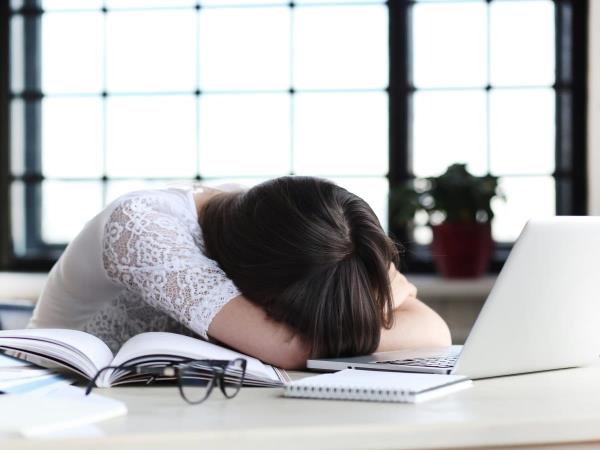So how to survive a day after a sleepless night and still maintain a professional appearance and good mood? Allow us to share with you some proven tricks.
Plan Your Day in Advance
When you are tired, your mind operates somewhat like a slow internet connection – everything goes slower and decision-making is more difficult. Our brains in a state of fatigue operate in energy-saving mode, as confirmed by studies from Stanford University, which showed that tired people make 40% more impulsive decisions.
If you are facing a demanding day after a bad night's sleep, set your priorities in the morning or even better – the evening before. Write a list of tasks, prioritize them, and tackle the most difficult ones first while you still have some energy.
Seek Sunlight – or at Least Light
Light is to your brain what coffee is to your body – a true stimulant. In our brains, we have a circadian rhythm (which is an internal biological clock that regulates sleep and wakefulness), managed by a special core – the suprachiasmatic nucleus.
Early exposure to sunlight helps reset this cycle, as confirmed by a study from the American clinic Mayo, which recommends at least 30 minutes of morning light. If it's cloudy outside, you can also benefit from brighter indoor lights – the more light, the better!
Quick tip: if possible, walk or bike to work. Just 20 to 30 minutes of walking can significantly reduce drowsiness.
Nap – but Smartly!
If your job allows a short break, indulge in a power nap – a short sleep lasting 10 to 20 minutes.
Why not longer? If you sleep more than half an hour, you enter a deep sleep phase (called the REM phase – Rapid Eye Movement), which can leave you even more dizzy and sleepy when you wake up. A NASA study showed that a short nap increases alertness by 34% and improves work performance by 16%!
It's wise to set an alarm and find a quiet spot – even in your car in the parking lot if necessary.
Physical Activity – the Best Natural Pick-Me-Up
When you're tired, your body convinces you that you need the couch, not exercise. But movement can be your secret weapon!
Even a short bout of physical activity – like 15 minutes of brisk walking – can increase blood flow to the brain and trigger the release of endorphins (natural happiness hormones) according to the American Heart Association.
The best time for exercise after a sleepless night is in the morning or early afternoon, as late workouts can further disrupt your sleep at night.
Coffee – Yes, But with Caution
We know, coffee is almost a given. Caffeine in coffee works by blocking the action of adenosine – a chemical in the brain that promotes drowsiness.
But beware: the effects of caffeine can last up to 8 hours! If you drink coffee late in the afternoon, you might end up tossing and turning the next night. Experts recommend a maximum of 400 mg of caffeine per day (about four small cups of coffee), but this can vary per individual. If you don't usually drink coffee, start with half a cup to avoid shaky hands and nervousness.
Cold Shower and Cold Air
High temperatures lull us to sleep, while cold ones perk us up. It's that simple. So if you're struggling with drowsiness, open the windows, turn on a fan or air conditioner, and if you're feeling really brave – hop into a cold shower.
Studies show that a cold shower (around 15 degrees Celsius) activates the sympathetic nervous system, increases heart rate, and quickly clears the mind.
Hydration is Your Best Friend
Even mild dehydration can reduce concentration, increase fatigue, and lead to headaches. According to the European Food Safety Agency (EFSA), an adult should consume about 2 liters of water per day, equivalent to roughly 8 glasses.
If you started the day tired, increase your water intake. If you exercise or spend a lot of time in the sun, drink even more.
Quick tip: keep a water bottle by your side and sip on it throughout the day.
Some Interesting Numbers:
- 20% of all traffic accidents are due to driver fatigue (Source: National Sleep Foundation).
- After one sleepless night, cognitive abilities (memory, attention, reflexes) can be impaired as much as having a blood alcohol level of 0.05% (Source: Sleep Research Society).
- People who sleep less than 6 hours per night have a 13% higher risk of early death (Source: PLoS Medicine).
While nothing can replace a good night's sleep, with simple tricks and a little discipline, you can significantly ease your day after a sleepless night. With some sunlight, a cup of coffee (not three), a short walk, cold water, and good planning, you'll overcome fatigue better than you think.
And don't forget: your body will thank you if you get a good, long night's sleep as soon as possible. Next time, maybe switch off your phone in the afternoon and listen to what your body whispers: Sleep. It can only do you good ...









 Would you like to be informed about news on the website?
Would you like to be informed about news on the website?

